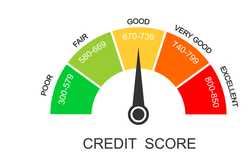13 Small Business Ideas in February


Our evaluations and opinions are not influenced by our advertising relationships, but we may earn a commission from our partners’ links. This content is created by TIME Stamped, under TIME’s direction and produced in accordance with TIME’s editorial guidelines and overseen by TIME’s editorial staff. Learn more about it.
Small businesses—those with fewer than 500 employees—aren't really that small when you consider their collective impact on the economy. Some 33.2 million small businesses in the U.S. account for 99.9% of the nation's companies and employ 61.7 million people or 46% of all private sector employees according to recent data from the U.S. Small Business Administration.
A record-breaking 5.4 million new business applications were filed in 2021—an average of almost 15,000 per day—with nearly as many (5.1 million) filed in 2022.
If you're considering joining the ranks of entrepreneurs but aren't sure where to start, here are 13 small business ideas to consider.
An essential part of growing your business is making it easy for customers to find you. You might consider joining a trade association or your local chamber of commerce, partnering with complementary businesses, or participating in community events. Another option is to join a service that connects people looking for services with people offering them.
For example, you can enter details about your services on Bark.com. When Bark users search for something relevant, you’ll get the potential customer’s email address and phone number so you can reach out. Signing up is free, and you’ll only pay to contact customers you think are a good fit for your business. Costs vary depending on the service you offer, the value of the job, and the supply and demand in your area. Other lead-generation services include TaskRabbit, Fiverr, Freelancer.com, and Angi (formerly Angie’s List).
A bookkeeping business might be a good option if you're good with numbers, well-organized, and detail-oriented. As a freelance bookkeeper, you'll record financial transactions, reconcile bank and credit card statements, generate invoices, manage collections, prepare budgets and forecasts, manage payroll, prepare financial statements, gather tax data, and more. Managing someone's finances does come with inherent risks, so consider forming an LLC if you go this route.
High car prices are compelling people to drive their vehicles longer, bolstering the demand for auto detailing services to keep those cars looking new. According to Grand View Research, the global car detailing market was valued at $37.91 billion in 2022, and it's expected to grow 5.5% annually through 2030. Depending on your business plan, you can offer mobile detailing services or have customers visit you. While you don’t need any formal training, completing a certificate program, such as the ones offered by the International Detailing Association, can help you stand out from the competition.
A house cleaning business is a good option if you're detail-oriented and have strong time management skills. Depending on the client, you might sweep, vacuum, mop, dust, clean the kitchen and bathrooms, remove garbage and recycling, change the bed linens, tidy the living areas, and clean the windows. Some clients will provide the cleaning supplies, while others expect you to bring your own. You don't need formal training or certifications to clean homes—but being bonded and insured indicates a level of professionalism.
By 2034, older adults are expected to outnumber children for the first time in U.S. history, according to data from the U.S. Census Bureau. The rapidly aging population will create greater demand for in-home caregiving. As an elderly care provider, you'll provide companionship, monitor medications, prepare meals, help with household chores, schedule medical appointments, provide transportation, and assist with basic needs, including eating, bathing, and grooming.
Event planners help individuals and companies plan and execute special events like weddings, birthday parties, graduation ceremonies, conferences, and fundraisers. An event planning business can be very rewarding if you're highly organized, meticulous, have strong communication skills, and know how to stick to a budget.
While you won't need any special licensing or credentials, it helps to have a network of vendors and professionals to help you successfully pull off each event. If you prefer not to start your business from scratch, consider using an online marketplace such as Flippa to buy an existing online business, app, or blog.
If you have a knack for creative or technical writing, freelance copywriting could be a rewarding business opportunity. Copywriters create content for websites, newsletters, social media captions, blog posts, graphics, billboards, magazines, brochures, instruction manuals, and more. You'll need a computer and a good internet connection to get started, and a proofreading tool like Grammarly can help you hone your craft.
A handyman (aka odd-jobber, fixer, or contractor) performs various repair and maintenance tasks to keep homes and businesses in good condition. Depending on your skill set, you might concentrate on odd repair jobs, such as installing fixtures and cleaning the gutters, or specialize in a specific area, such as electrical, plumbing, or HVAC systems. Your state may require a general contractor license for larger projects and specific licensing if you perform electrical, plumbing, or HVAC work.
According to the Education Recovery Scorecard, math, reading, and history scores from the past three years show that students learned much less during the pandemic than average. With so many kids falling behind in school, online tutoring is in high demand—and it's expected to grow. While you don't need any specific certifications, tutors generally have a college degree or relevant real-life experience in the subject area(s) they offer.
If you love animals, there are several pet care business opportunities worth considering. One option is a dog walking business, where you provide companionship and exercise for your customers' furry friends (you can work with one dog or several at a time). Another possibility is a mobile or brick-and-mortar pet grooming business, where you keep dogs looking (and smelling) great. Alternatively, you could offer pet-sitting services to care for animals while their owners are away on business trips or vacations.
There are many ways to turn your passion for real estate into a thriving business, whether you want to open a real estate agency, flip houses, work as a property manager, or invest in rental properties. You'll need a state real estate license to act as an agent, broker, or property manager. Otherwise, there are no specific requirements to flip houses or rent out properties you own, though it's wise to study the local laws and regulations to avoid legal trouble.
If you have a valid driver's license and own a vehicle, you can work a side hustle or even a full-time gig as an Uber or Lyft driver. As a rideshare driver, you can choose your own hours, drive as much as you want, and earn cash from fares, tips, and promotions. You must meet minimum age requirements and have a clean driving record, proof of vehicle insurance, and an eligible car. DoorDash is an option if you like driving but prefer transporting groceries and restaurant meals instead of people.
Many business executives depend on virtual assistants (VAs) to help with administrative tasks like answering phone calls, monitoring email accounts, scheduling appointments, coordinating travel, ordering supplies, and managing social media profiles. Successful virtual assistants are detail-oriented and have excellent verbal and written communication skills, strong organizational and time management skills, and proficiency in a broad range of computer programs.
Starting a small business requires a lot of planning and paperwork. Some tasks you'll need to tackle include writing a business plan, figuring out financing, choosing a business structure, getting a federal tax ID, applying for licenses and permits, opening business bank accounts, getting a small business credit card, and choosing the right business software.
According to the SBA, about 38% of small businesses use specialized software in their business operations. Here are some options for managing your company's finances, taxes, and legal responsibilities.
A big part of running a small business is managing the finances. Platforms offer tools to streamline your business operations so you can easily handle banking, accounting, invoicing, payments, tax preparation, and more. Lili also supports joint banking access—a big plus if your business has multiple owners.
The most common small business taxes include income, self-employment, employment, and excise taxes (only imposed on certain goods, services, and activities). Several online tax software providers like TurboTax and TaxSlayer Self-Employed make filing accurate tax returns that comply with the most up-to-date tax laws easier. Once you start turning a profit, wealth management apps such as Playbook can optimize your investments and income taxes and help you set goals to build wealth.
You'll have to file paperwork to establish and operate your company. Platforms like LegalZoom eliminate the guesswork and make it easy to register, manage, and protect your business. With LegalZoom's tools, you can form your business with the proper structure, stay compliant, protect your intellectual property (IP) with trademark and copyright services, and get professional help when needed.
While anyone can make a few extra bucks with money-making apps such as Survey Junkie or Swagbucks, starting a small business is a more significant and rewarding endeavor. When choosing a path, you need to consider your strengths and weaknesses so you know where to focus your attention.
Small business owners wear a lot of different hats, but you might need help in certain areas. Recognize what you do well—and what you don't—and turn to family members, business partners, independent contractors, and employees when you need help.
Whether you're a solopreneur or manage a small business with employees, keeping your personal and business finances separate is essential. A business checking account lets you make deposits and withdrawals, write checks, process electronic payments, and use a debit card to make purchases—all for your business. The best business checking accounts have low fees, workable minimum balance requirements, excellent customer service, and convenient access to your cash.
If you have a $10,000 budget to start a business, focus on ideas with low startup costs that you can scale into something bigger. For example, you can launch a cleaning services business for just a few hundred dollars. Eventually, you can put more cash into marketing, build your client base, and hire staff to meet customer demand. If you don't have the money to start or grow your business, consider a small business loan, crowdfunding, or venture capital funding.
A polished website conveys professionalism and engages potential customers. You can hire an expert to make a website for you or take the DIY approach and save some money. You must pick and register a domain name and then choose your design and hosting providers. Website builders like Squarespace offer hundreds of low-cost templates you can customize with your content and link to your social media profiles.
A business plan guides you through each phase of starting and managing your business. There's no right or wrong way to write a business plan, but it should include details about your business goals, the products or services you'll offer, a marketing and sales plan, and financial projections. The SBA outlines two main types of business plans (traditional and lean startup), which can be helpful if you’re starting out.
The information presented here is created by TIME Stamped and overseen by TIME editorial staff. To learn more, see our About Us page.



